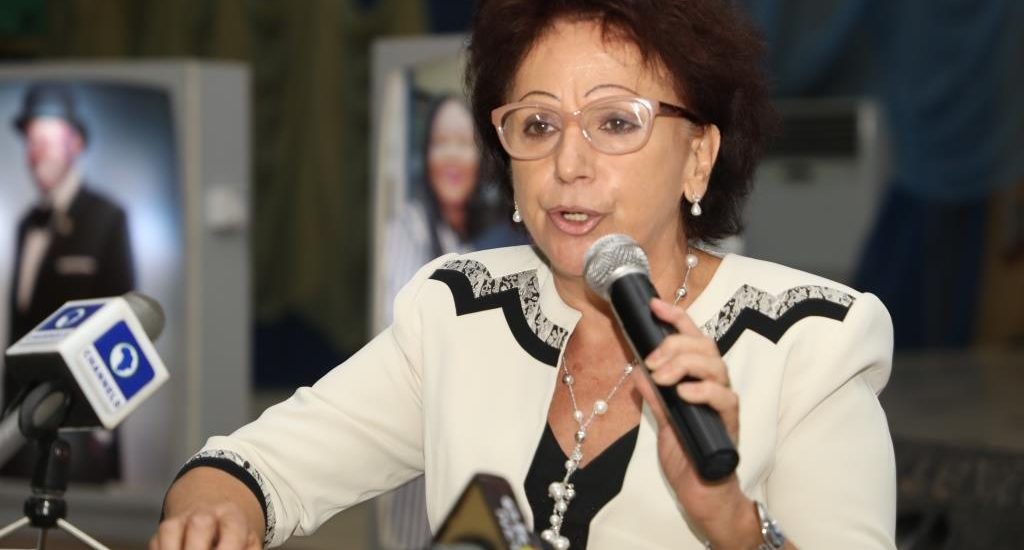- June 19, 2024
- Posted by: itmanager
- Category: Latest News

The Vice Chancellor of Afe Babalola University Ado-Ekiti (ABUAD), Professor Smaranda Olarinde, has revealed that the quality of education being offered in the institution with its unbroken academic calendar has made ABUAD a unique and different university globally.
Olarinde, who explained that the commitment of the founder, Aare Afe Babalola to change the narratives about the education system in the country was evident in the successes and achievements recorded by the university in its 13 years of existence.
The VC, who spoke with newsmen in her office noted that the successes and the leading ranks of the ABUAD has resulted in the request of both foreign and local universities seeking for mentorship from the school.
According to the professor of law, foreign institutions such as University for Industrial Development Ghana; International University of Grand Bassan, Côte D’Ivoire; Ecole Professionnelle Specialisee–La City University, Republic of Benin were being mentored by ABUAD.
She added that Nigerian universities both public and private also on the mentorship list included; Benue State University; Benson Idahosa University; Ado Bayero University, Bayero; Federal University of Technology Akure (for Medical Programmes); Western Delta University, Azman University Kano and Patigi University, Kwara.
She explained that the founder in the last few years invested his resources in the institution across major areas including building of infrastructural and laboratories edifice, for the comfort of the students for learning.
Olarinde said, “We started with 240 students in 2010. Today, we have over 8,000 students. Why are we unique? It’s because all our students are fully accommodated. This university is a full residential university. If you were here, few days ago, we matriculated 1,961 students, almost 2,000 at a go. How many universities out there could have done that? Yes, and we were ready for all of them. We are growing, and we are ready, because we prepare ahead.
“Apart from this, we have a stable academic calendar. Our parents, our students, the staff, we know when we start, we know when we break into our vacation, and we know again when we commence.
“Just like in developed countries, a student knows when he commences his academic journey, and he knows when he graduates.
“That is how it should be, and it is done here with us. We don’t play with academics, training, community service and development of entrepreneurial skills.
“Our students have evening lectures, It’s not preparatory, it’s their lectures. We lecture them in the morning between 8am and 3pm; they will have a break between 3pm and 7pm, they will have a break.
“They have enough time for their leisure and sports, and they come back compulsorily between 7pm and 9pm, sometimes 9:30pm for their evening lectures.
“This is how we make them better. We prepare them for society and our certificate is indeed for character and learning. We insist on the two components to be well satisfied. I can say that we are also very unique because what we offer here is not offered anywhere , I can stand tall to see.
“And our lecturers are very committed. I want to say and put on record that I am extremely grateful. Nobody can obtain any success in any endeavor unless it has the support of the team.”
She stated over the years, the university has been able to meet up with its responsibility of community service with regular medical outreach for the citizens of the immediate community and other economic and social interventions.
Professor Olarinde called on the federal government to ensure that the Tertiary Education Trust Fund (TETFund) interventions are extended to private universities, especially ABUAD for research development.
“Consequent upon the failure of public Universities to fully accommodate a majority of qualified candidates, Licenses were granted to private individuals and organizations to establish Private Universities in 1999.
“A careful reading of the relevant sections of the law shows that the intention of the lawmakers in imposing Education Tax on registered companies in Nigeria is for advancement of education to various levels and categories of education, through rehabilitation, restoration and consolidation of education in Nigeria.
“Curiously by the provisions of Section 7(1) of the Act, private institutions, including universities are excluded from benefiting from the funds collected from companies which are mainly private.
“It seems clear that Section 7(1) of the Act contradicts the provisions of Section 3(1), and violates Section 18 of the 1979 Constitution.
“The exclusion of private institutions, apart from the contradiction between Sections 3 and 7 of the law, is obviously unconstitutional, unfair and unjustifiable,” she said.
Source- Tribune Newspaper

